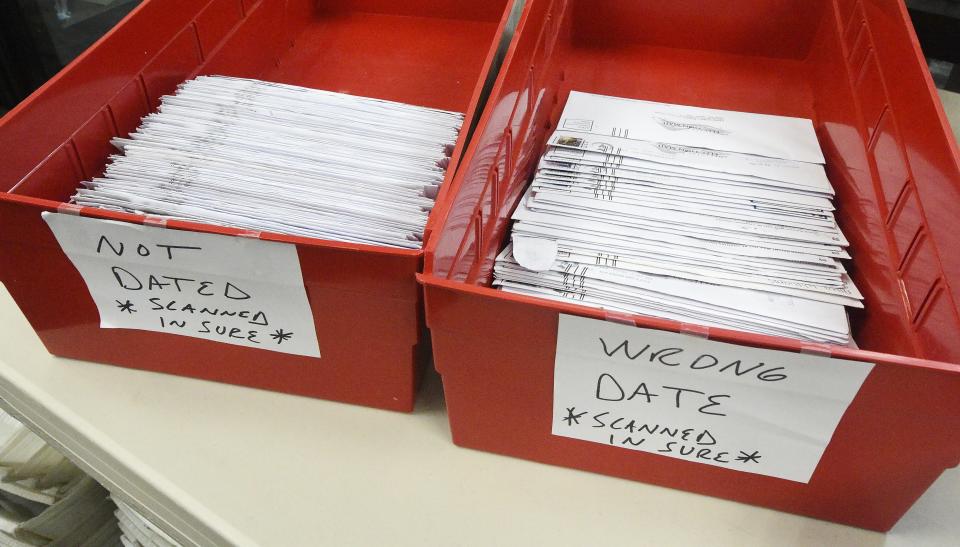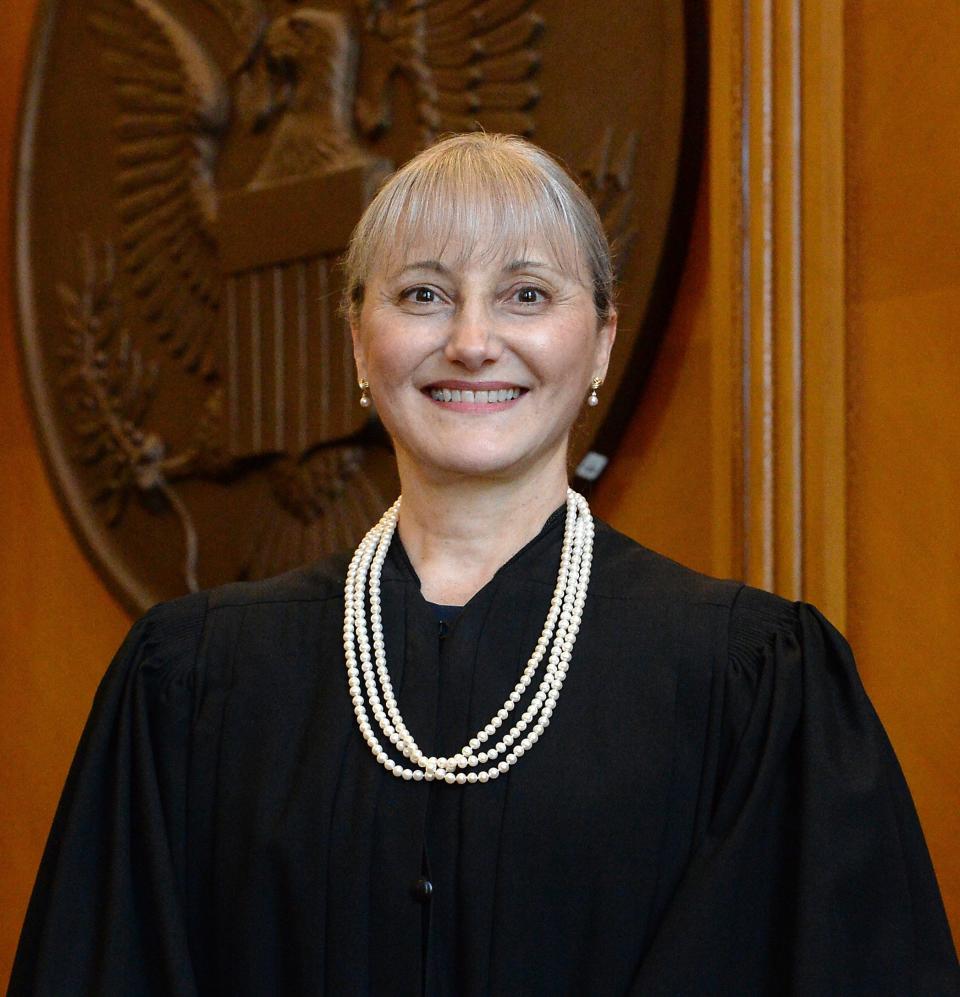US appeals court will not rehear case over Pa. mail-in ballots. Will SCOTUS take it on?
A federal appeals court has refused to revisit its ruling over mail-in ballots in Pennsylvania, leaving the U.S. Supreme Court as the next possible stop for a case that originated in Erie and that could influence the outcome of the 2024 presidential election.
The Philadelphia-based 3rd U.S. Circuit Court of Appeals has declined to reconsider its March 27 ruling that election officials in Pennsylvania are barred from counting mail-in ballots that arrive in time but that have inaccurate dates or no dates handwritten on their exterior envelopes.
The 2-1 decision by a three-judge panel reversed a Nov. 21 decision by U.S. District Judge Susan Paradise Baxter, of the Erie Division of the Pittsburgh-based U.S. District Court for the Western District of Pennsylvania.
Baxter held that the Civil Rights Act of 1964 requires election officials to count mail-in ballots without dates or accurate dates handwritten on their exterior envelopes if the ballots are received in time.

The Pennsylvania State Conference of the NAACP and other civil rights groups sued before Baxter in 2022 to challenge the Pennsylvania law that requires the invalidation of mail-in ballots due to misdated or undated forms.
After those groups won, the Republican National Committee appealed Baxter's decision, sending the case to the Circuit Court.
Following the 3rd Circuit panel's decision, the NAACP and other groups on April 10 petitioned the Circuit Court to rehear the case before a panel or the full 14-judge court.
Only four of the judges voted for a rehearing, leading the Circuit Court to deny the request, according to a one-line order docketed on Tuesday.
Could an appeal to the U.S. Supreme Court be next?
The next option would be for the voting rights groups to petition the Supreme Court, which first would have to grant a request to hear an appeal for the case to go forward. The American Civil Liberties Union of Pennsylvania is leading the representation of the groups.
"We are reviewing our options," ACLU of Pennsylvania spokesman Ian Pajer-Rogers said in an email.
The case hinges on the what is known as the Materiality Provision of the Civil Rights Act. The provision prohibits states from disqualifying voters because of a failure to provide unnecessary information on a voting application or ballot.

In her decision, Baxter found that elections officials do not use the date on the outer envelope of a mail-in ballot to determine whether to count a vote. Baxter said officials know when a mail-in ballot is returned by scanning a barcode on the return envelope.
On appeal, majority of the 3rd Circuit panel acknowledged that the date requirement "serves little apparent purpose." But the majority said the Materiality Provision does not override Pennsylvania law that "undated or misdated ballots are invalid."
A then-Republican-controlled General Assembly passed Act 77, the state law that authorized mail-in ballots, in 2019, and it took effect in 2020.
Ruling spotlights regulations for mail-in ballots
The 3rd Circuit's ruling will remain law unless the Supreme Court rules otherwise. The decision has heightened awareness of the rules for mail-in ballots in Pennsylvania, considered a swing state in the presidential race.
One million voters used mail-in ballots in the November 2022 election, and 10,000 of those ballots were not counted because of problems with the dating requirements, even though the ballots were returned in time.
U.S. Circuit Judge Patty Shwartz cited those statistics in her dissenting opinion in the Circuit Court panel's 2-1 decision in the mail-in ballot case.
The majority ruling that reversed Baxter's decision "is a clear reminder that all voters must carefully review and comply with every instruction and requirement imposed upon them," Shwartz wrote in the dissent. "If they do not, they risk having their otherwise valid votes discounted based on even the most inconsequential mistake."
Senior U.S. Circuit Judge Thomas Ambro wrote the majority decision. U.S. Circuit Judge Cindy Chung joined the majority.
Democratic presidents appointed Ambro, Chung and Shwartz. Bill Clinton appointed Ambro, Joe Biden appointed Chung and Barack Obama appointed Shwartz.
Contact Ed Palattella at [email protected] or 814-881-0238. Follow him on X @ETNpalattella.
This article originally appeared on Erie Times-News: 3rd Circuit declines to rehear case on PA mail-in ballots. What's next
Solve the daily Crossword

